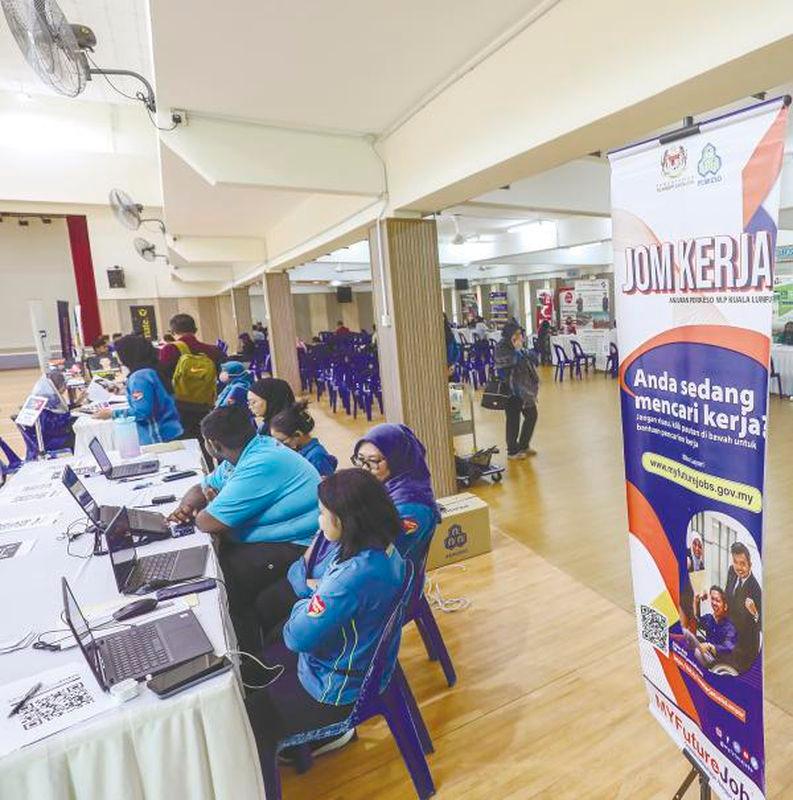PETALING JAYA: The current generation does not have clear career aspirations or may be exploring non-traditional career paths, making job fairs less relevant to their needs, said Universiti Teknologi Mara human resources senior lecturer Dr Muhammad Aiman Arifin.
“With the rise of LinkedIn, online job portals like Jobstreet, and virtual career fairs, many young professionals think that it is irrelevant to attend traditional job fairs.
“Technological advancements have created new opportunities in fields like digital marketing, content creation and sustainability consulting, encouraging young people to explore these innovative career paths.”
Muhammad Aiman said these emerging sectors often do not have a strong presence at traditional job fairs, which typically cater to more established industries like finance, engineering and healthcare.
He added that the rise of remote work and the gig economy have reshaped how individuals perceive and pursue employment.
“Many in the current generation are drawn to freelance or remote work opportunities that offer flexibility and autonomy, which are not typically showcased or easily accessible through traditional job fair formats.
“The current generation places a high value on personal fulfilment and work-life balance, often prioritising roles that align with their passions and values over conventional career trajectories.”
Muhammad Aiman said this preference for alternative work arrangements further diminishes the relevance of physical job fairs, which tend to focus more on full-time, office-based positions.
A recent job fair attendee, Amyzarifah Mohd Yunus found the experience quite disappointing.
She said the event was poorly organised, with long lines and little guidance on where to go.
“Many of the companies present did not seem genuinely interested in hiring. They were just collecting resumes without engaging in meaningful conversations.
“Even the variety of employers was limited, and many industries were underrepresented. It felt like a waste of time.”
Muhammad Aiman said most companies find less need to invest in physical job fairs.
“They face challenges in efficiently screening resumes collected during such events, often finding the process cumbersome and less effective compared with online platforms where filtering and matching of candidates can be done more efficiently.”
A private career fair communication and marketing head Ong Wai Keong said there is a significant decrease in interest in attending job fairs and the number of participants has also declined.
“This decline mirrors trends seen in education fairs, where fewer individuals are actively seeking out such events as a primary means of advancing their careers or education.”
Ong said while job fairs may not guarantee immediate employment, it is still a valuable job search tool and those who benefit from such fairs are those who come prepared.
“Success often depends on preparation, market demand and effective networking. Most job hunters are between the ages of 35 and 45 and typically arrive well prepared for job fairs with polished resumes, clear career goals and ready to engage with potential employers.”
Ong said fresh graduates who are new to the job market, however, often register to attend these fairs but frequently fail to attend.
A private university’s mega career fair held last month, however, set the benchmark as Malaysia’s largest university-organised career fair, featuring 19 industries and 120 exhibitors, with half from Malaysia’s Top 100 leading graduate employers.
The Malaysia Digital Premier Digital Tech Institutions’ Talent Hunt was a success, drawing a diverse crowd of job seekers and visitors to the university.
The fair presented over 10,000 career opportunities, including 5,333 full-time jobs and 4,809 internships.









